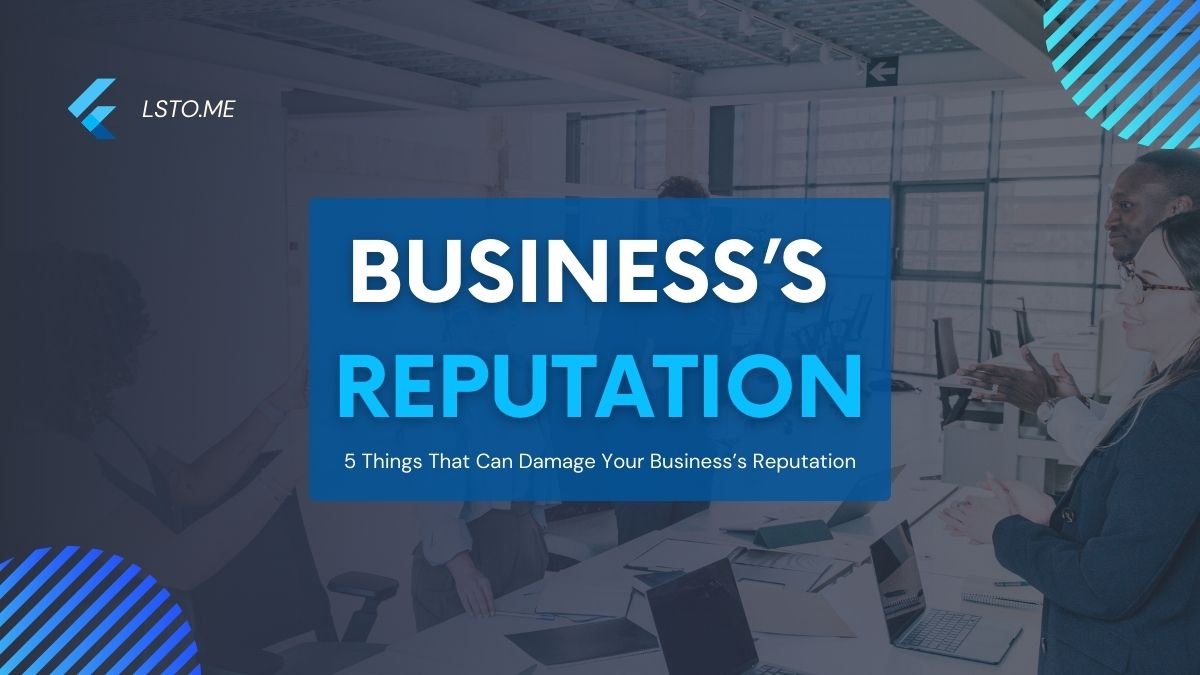
In today’s interconnected world, a business’s reputation is an invaluable asset. It takes years to build a solid reputation, but it can be shattered in an instant due to various factors. As a business owner or professional, it is crucial to understand the potential threats that can damage your business’s reputation. This blog post aims to highlight some common factors that can negatively impact your business reputation and provide insights on how to safeguard against them.
1. Poor Product or Service Quality:
Poor product or service quality is one of the most significant threats to a business’s reputation. Customers are the heart and soul of any business, and their satisfaction is critical to its success. When customers receive subpar products or services, they are likely to share their negative experiences with others, which can damage your business’s reputation. In today’s digital age, it only takes a few clicks for customers to share their opinions on social media platforms such as Facebook, Twitter, Instagram, or even Yelp.
The consequences of poor-quality products or services can be crippling for businesses. A bad review on social media can go viral in seconds and attract thousands of views in no time. It may also lead to the loss of existing customers who may choose to explore other options instead. Furthermore, potential clients may be discouraged from considering your business if they come across negative reviews online.
Solution: Focus on quality control measures, invest in regular training and development for employees, and proactively gather customer feedback to address any issues promptly. Swiftly resolving customer complaints and offering compensation or refunds can help rebuild trust and maintain a positive reputation.
2. Ethical Lapses and Misconduct:
Unethical behavior or misconduct within a business can cause severe damage to its reputation. Fraudulent activities, including embezzlement, insider trading, and false advertising can be detrimental to the success of any company. These unethical practices not only harm the organization but also erode public trust in the industry as a whole.
A single instance of ethical misconduct can lead to the negative publicity that may take years for a company to recover from. Businesses need to establish clear codes of conduct and implement strict policies and procedures to prevent such lapses. Employees must be made aware of their responsibilities and held accountable for their actions. This ensures that they adhere to ethical standards while carrying out their duties.
Moreover, businesses must create an environment where employees feel comfortable reporting instances of unethical behavior without fear of retaliation.
Solution: Establish a strong code of ethics and ensure all employees are aware of and adhere to it. Foster a culture of integrity, transparency, and accountability throughout the organization. Regularly conduct internal audits to identify and address any potential ethical issues. When misconduct occurs, take swift action, and communicate openly with stakeholders about the steps taken to rectify the situation.
3. Poor Customer Service:
Customer service is a crucial aspect of maintaining a positive business reputation. In today’s fiercely competitive market, customers are more demanding than ever before and expect to receive prompt and efficient support whenever they encounter an issue. Poor customer service can be disastrous for your business, causing irreparable damage to your brand image.
Negative experiences with customer support not only hurt the customer but also harm the company’s bottom line. Companies that fail to provide adequate customer service see a significant decline in sales, revenue, and profits as frustrated customers take their business elsewhere. A single negative experience can turn into a viral social media post or a bad online review that spreads like wildfire across various digital platforms.
Businesses must recognize that providing excellent customer service is not just about resolving customer complaints; it is about building long-term relationships with customers and creating loyal brand advocates.
Solution: Invest in robust customer service processes and train employees to provide exceptional service. Encourage active listening, prompt response times, and personalized interactions. Implement channels for customers to voice their concerns and complaints, and be proactive in resolving issues to showcase your commitment to customer satisfaction.
4. Negative Online Reviews and Social Media:
Online reviews and social media platforms have become the most powerful tools for businesses to attract customers. However, these same tools can also be used against a business if negative reviews start pouring in. Negative online reviews can damage your business reputation in unimaginable ways. A single bad review can lead to a string of poor ratings and eventually cause potential customers to lose confidence in your brand.
The effects of negative reviews are not limited to just online spaces; they can also spread through word-of-mouth. With social media at our fingertips, it has become easy for people to share their experiences with others, whether good or bad. This ability has given consumers the power to voice their opinions about products and services without any restrictions or barriers. As such, businesses must learn how to manage negative feedback on social media because one bad comment could spark a chain reaction that would hurt their bottom line.
Solution: Regularly monitor online reviews and social media mentions related to your business. Respond promptly and professionally to negative feedback, showing genuine concern and a willingness to address the issues raised. Encourage satisfied customers to leave positive reviews and engage with your brand on social media to counterbalance any negative sentiment.
5. Data Breaches and Security Incidents:
Data breaches and security incidents have become common occurrence. These events can cause significant damage to your business reputation. In the event of a data breach, customers’ personal information can be compromised, leading to mistrust and dissatisfaction towards your company. This is especially true for companies that handle sensitive information such as financial institutions or healthcare providers.
The reputational damage caused by data breaches and security incidents can also lead to long-term financial losses. Customers may choose to take their business elsewhere resulting in lost revenue for your organization. Moreover, the cost of remedial actions such as legal fees, IT investigation costs, and public relations efforts can add up quickly. Therefore businesses need to take proactive measures to protect their networks from cyber threats before they occur. This includes regularly updating software programs, performing vulnerability assessments, and implementing firewalls and intrusion detection systems among others.
Solution: Prioritize data security by implementing robust cybersecurity measures, including encryption, regular system updates, and employee training on data protection practices. Be transparent with customers about your security measures and communicate promptly in the event of a security incident, outlining the steps taken to mitigate risks and protect affected individuals.
Conclusion:
Protecting your business’s reputation requires constant vigilance and proactive measures to address potential threats. By focusing on delivering high-quality products or services, maintaining ethical standards, providing excellent customer service, actively managing online presence, and prioritizing data security, you can minimize the risk of reputation damage. Remember, a strong reputation is built on trust, transparency, and consistently exceeding customer expectations.




